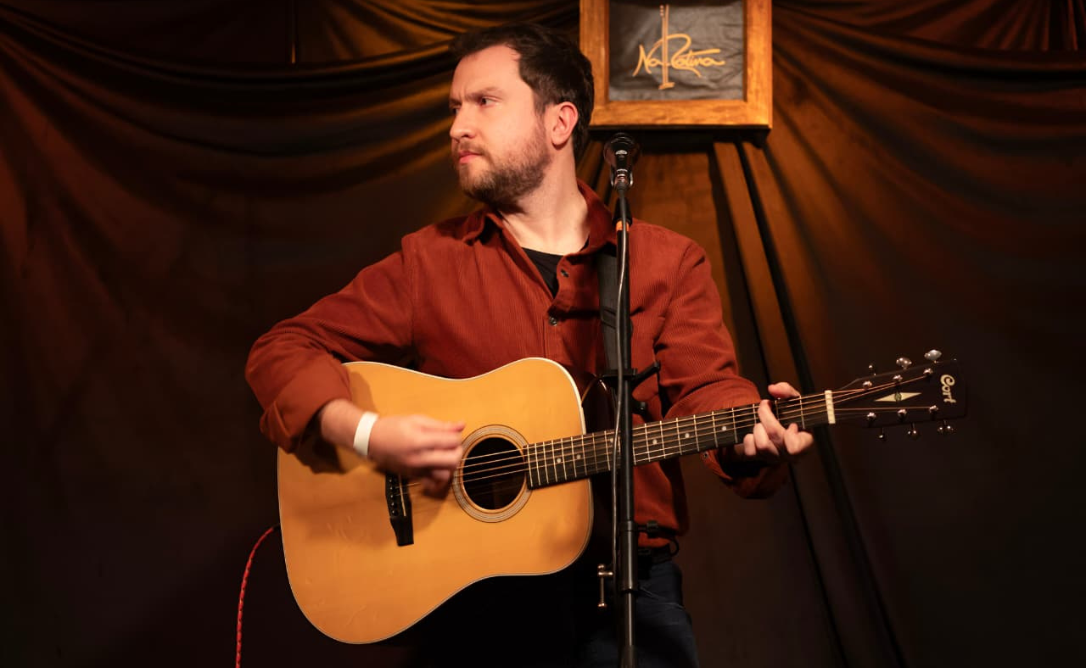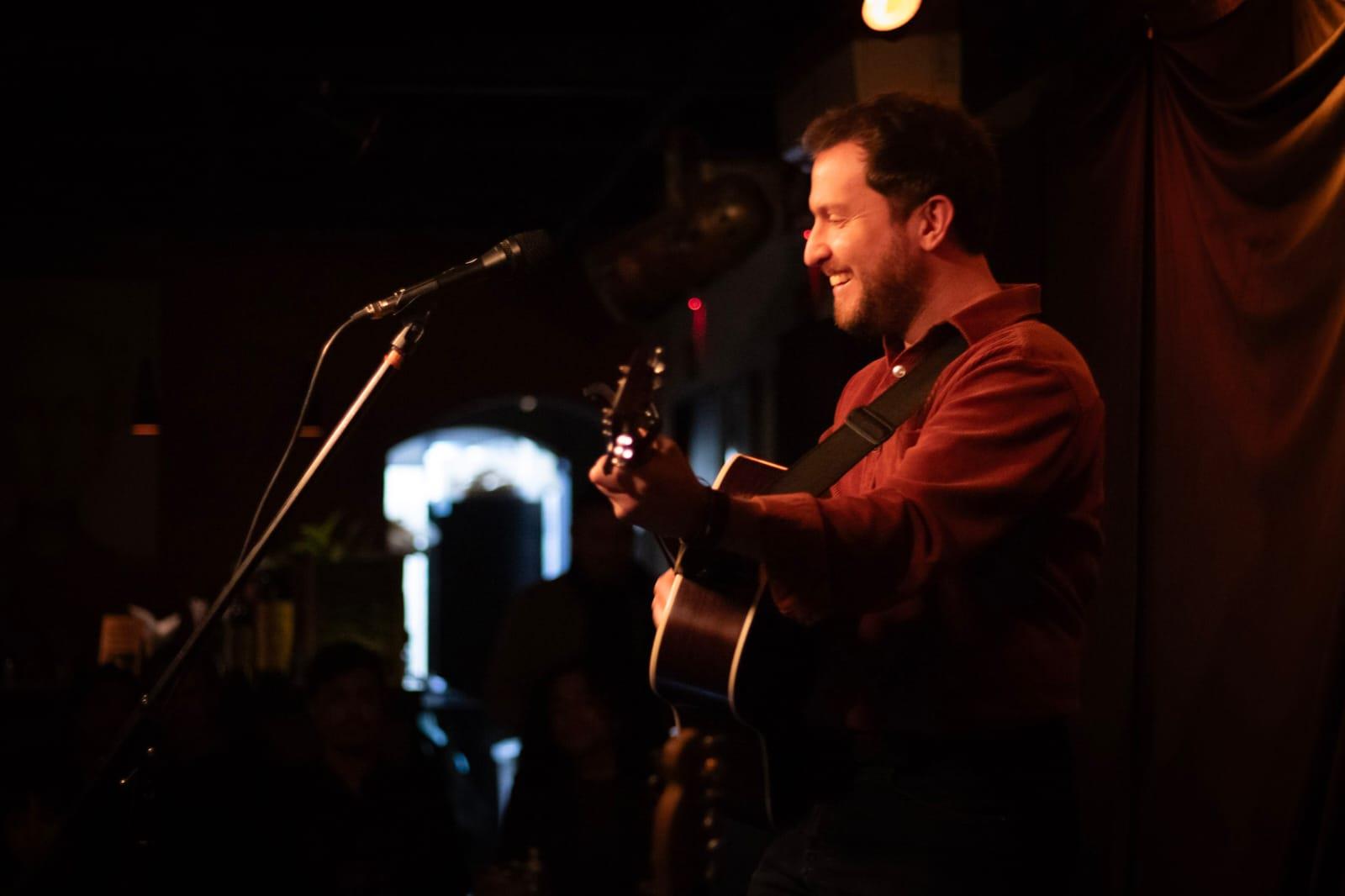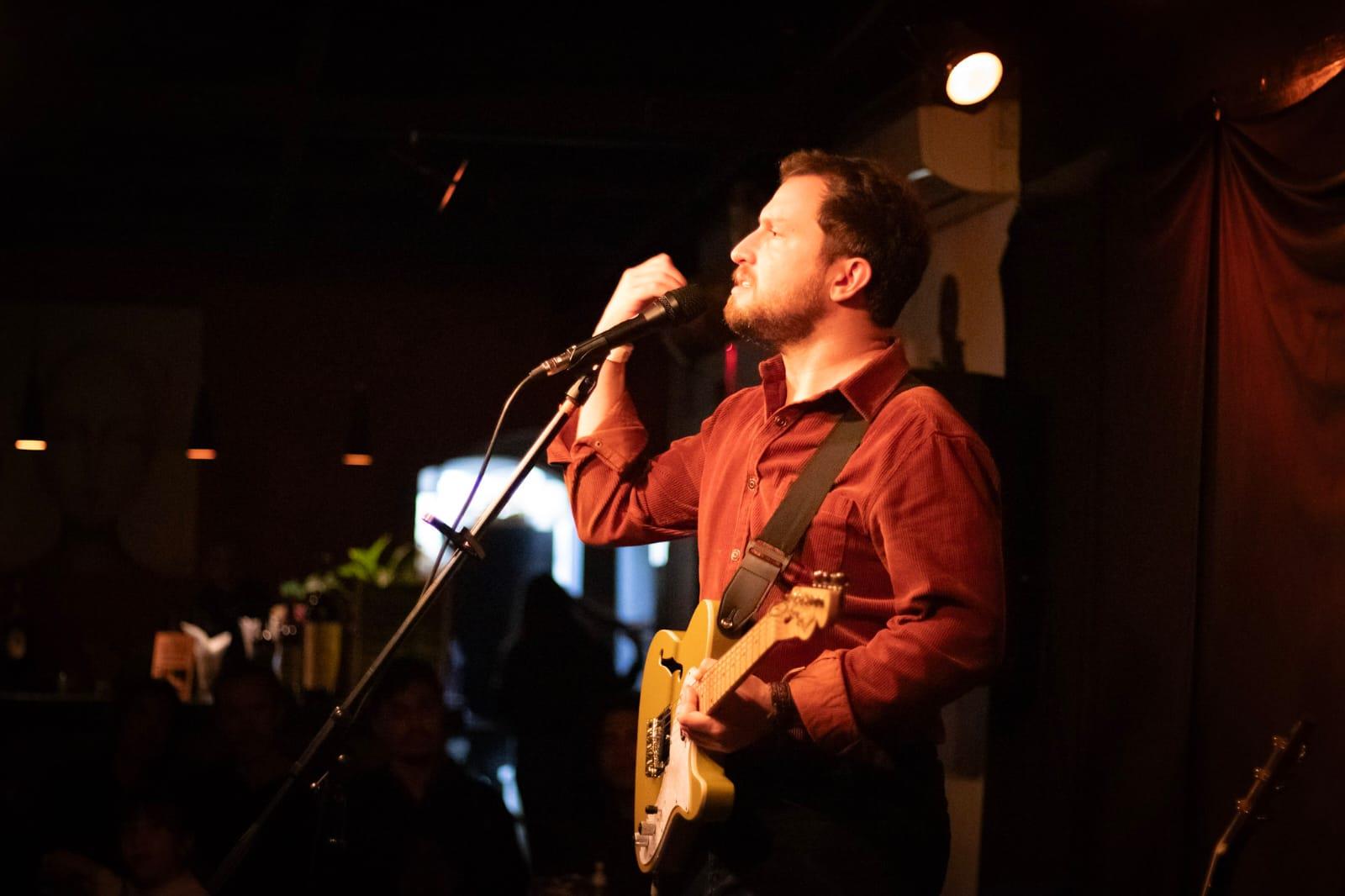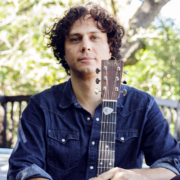
Inspired by the true story of Lilian Bland — the Irish pioneer who built and piloted her own airplane in the early 20th century — singer-songwriter Pedro Vulpe transforms the spirit of freedom and persistence into sonic poetry with the EP “MAYFLY,” which arrives on digital platforms on October 30th. With four folk tracks that blend introspection, emotion, and creative force, the artist from Santa Catarina revisits his time in Ireland and his journey on Brazilian stages to celebrate the act of dreaming — even when flight seems improbable.
“MAYFLY” was inspired by the story of a woman who decided to fly when told she couldn’t. At what point in your own journey did you also feel the need to build your own wings?
I believe this is a constant in any life. I don’t think it’s strictly specific to those with an artistic career, but to anyone who can be – and certainly will be – thwarted personally or professionally. The key is precisely to take that negativity and transform it. I’ve experienced this many times; everyone has an opinion or advice based on absolutely nothing to give to an artist.
The four tracks on the EP form a kind of journey about courage and dreams. There’s an emotional order to them—as if each song represents a stage in this process of “taking your feet off the ground”?
I think each track addresses an area of life, without any particular order or degree of urgency. They all call for courage and are relevant: Lonely Second is about inspiration from a setback, Ashes is about the emotional niche, Older is about fatherhood, and Life Of Dreaming is about music.

You spent time in Ireland and also acted in “Once – The Musical,” which uses music as a language of affection. How much did this international and theatrical experience influence the sound and sensibility of MAYFLY?
“Once” is, first and foremost, a story I discovered when I was 17. Back then, I fell in love with the film and the music—with the work of Marketa Irglova and Glen Hansard. That’s when I traveled to Ireland and started to delve deeper into the world of contemporary folk, you know? There’s a sensitivity in those songs that deeply touches you; it’s precisely that kind of vulnerability that I try to bring out when I compose. Reproducing that in some way in the play was wonderful.
In “Ashes,” you talk about something that isn’t love, but still has value. What inspires you to transform “incomplete” feelings into art—those that lie between what was and what could have been?
This song is as relevant as any love story that has a beginning, middle, and end. Interestingly, these lyrics were inspired by a character from the book/series Lovecraft Country – someone who was destined to live through these “almost loves” in order to stay alive.

The song “Older” is a kind of conversation with oneself. If you could give advice to the Pedro of the past—perhaps the one who was just starting to compose—what would you tell him?
It started as a letter to young Pedro, with a handful of advice I would have given him if, back then, I had known what would happen to me. But it didn’t end that way; it ended up being a letter to my daughter, and everything I want her to remember, every lesson I want her to hear from her father.
“Life of Dreaming” was inspired by Werner Herzog, a filmmaker known for transforming the impossible into art. Is there something of Herzog in you—that willingness to push yourself to the limit for what you believe in?
I think that spirit needs to exist in any artist. Herzog is a director very much driven by his ideas, without always knowing how to execute them or even having the technique to do so, but that never stopped him from creating wonderful films.
You performed at São Paulo Fashion Week, a rather unconventional stage for folk music. What was it like to see your song open a fashion event? Does art seem more alive to you when it blends with other universes?
It was really enjoyable to break through the bubble of what people expect a folk singer’s stage to be. I think art ends up being much greater when combined with other areas; everything is valid if the parts can coexist equally.
“MAYFLY” means “maybe it will fly.” If the EP were a conversation with the audience, what would you like it to say to those who are listening—and perhaps also doubting their own ability to fly?
Where there is doubt, there is possibility. The beauty lies in trying; in an era obsessed with results and ostentation, we need to find joy in the courage to travel this uncertain path, much more than in any certainty of reward. It’s much easier to live with failure and multiple attempts than with the regret of not having tried. Try!
Follow Pedro Vulpe on Instagram


